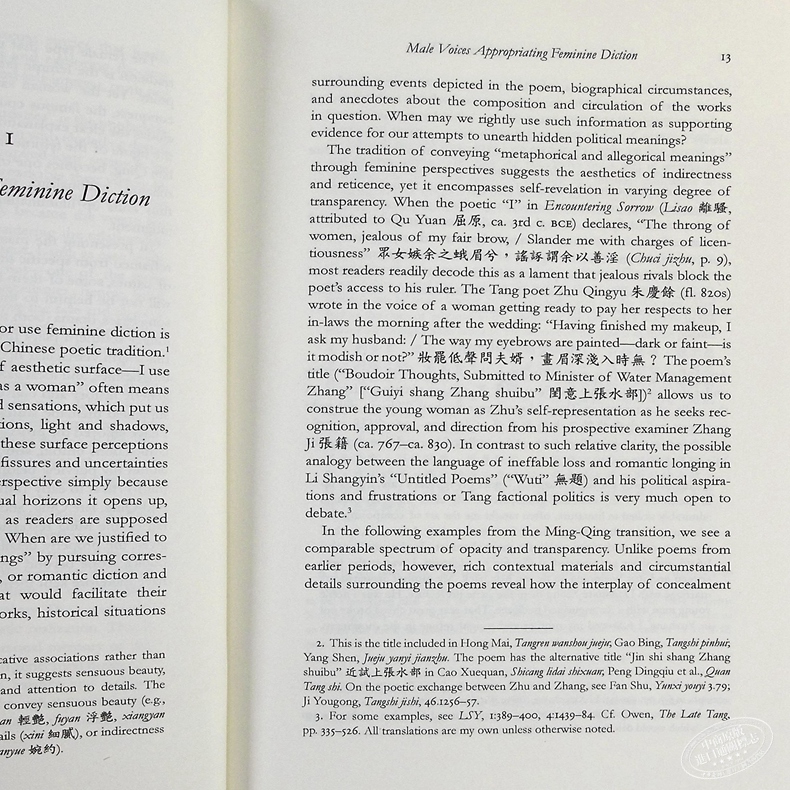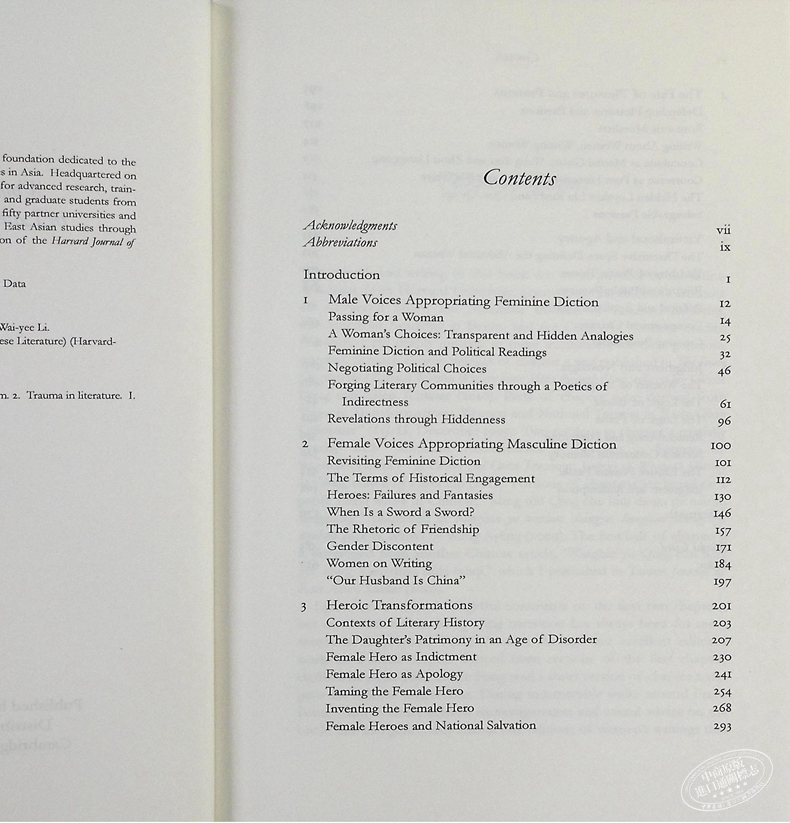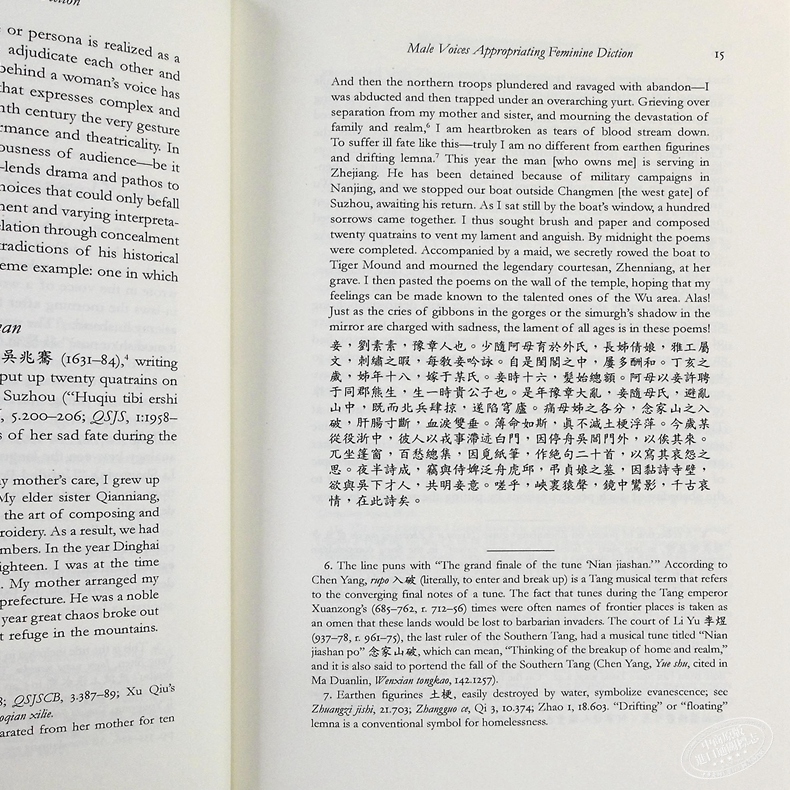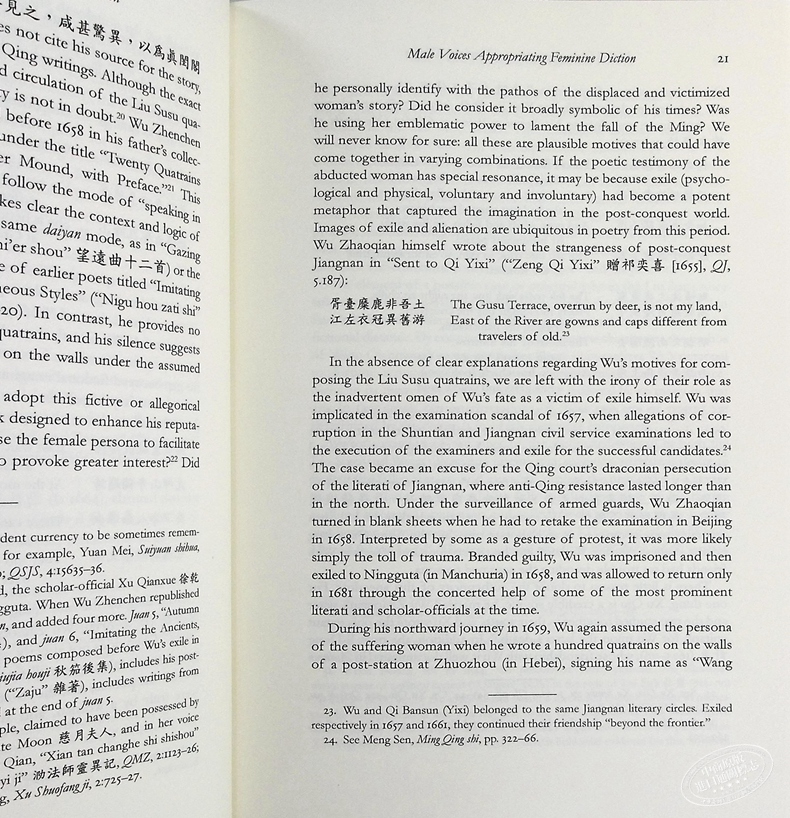Women and National Trauma in Late Imperial Chinese Literature
近代中國文學中的女性與民族創傷
基本信息
Author:Wai-yee Li
Format:Hardback | 650 pages
Dimensions:158 x 236 x 46mm | 1,078g
Publication date:11 Aug 2014
Publisher:Harvard University Press
Language: English
ISBN10:0674492048
ISBN13:9780674492042
頁面參數僅供參考,具體以實物為準
書籍簡介
在17世紀的中國,明清王朝的過渡是一個劃時代的事件,它在清政府的著作中產生了深遠的影響;政治的混亂與活躍的文學文化生產是密不可分的。《近代中國文學中的女性與民族創傷》側重於女性主導的話語空間和想象空間,包括男性和女性寫作作品的女性聲音或假設女性身份,以及作品,把女人變成一個能指通過作者傳達他們的哀歌,懷舊,或道德問題了,這本書深入探究了心態的人記住或反映王朝的過渡,以及那些後期改造了它的重要性。它展示了歷史和文學是如何交叉的,性別的概念是如何調解政治混亂的經歷和表達的。
為什麼以及如何將與性別界限、女性美德、惡習、代理和倫理困境相關的主題變化來諷喻民族命運?為了尋求這些問題的答案,李慧儀探討了女性在不同體裁中的多重存在如何提供了一個窗口,讓我們得以瞭解明清時期的情感和心理動盪以及隨後的民族創傷時刻。
The Ming–Qing dynastic transition in seventeenth-century China was an epochal event that reverberated in Qing writings and beyond; political disorder was bound up with vibrant literary and cultural production. Women and National Trauma in Late Imperial Chinese Literature focuses on the discursive and imaginative space commanded by women. Encompassing writings by women and by men writing in a feminine voice or assuming a female identity, as well as writings that turn women into a signifier through which authors convey their lamentation, nostalgia, or moral questions for the fallen Ming, the book delves into the mentality of those who remembered or reflected on the dynastic transition, as well as those who reinvented its significance in later periods. It shows how history and literature intersect, how conceptions of gender mediate the experience and expression of political disorder.
Why and how are variations on themes related to gender boundaries, female virtues, vices, agency, and ethical dilemmas used to allegorize national destiny? In pursuing answers to these questions, Wai-yee Li explores how this multivalent presence of women in different genres provides a window into the emotional and psychological turmoil of the Ming–Qing transition and of subsequent moments of national trauma.
作者簡介
李慧儀,哈佛大學中國文學教授。
Wai-yee Li is Professor of Chinese Literature at Harvard University.
目錄
Acknowledgments vii
Abbreviations ix
Introduction 1
1 Male Voices Appropriating Feminine Diction 12
Passing for a Woman 14
A Woman's Choices: Transparent and Hidden Analogies 25
Feminine Diction and Political Readings 32
Negotiating Political Choices 46
Forging Literary Communities through a Poetics of Indirectness 61
Revelations through Hiddenness 96
2 Female Voices Appropriating Masculine Diction 100
Revisiting Feminine Diction 101
The Terms of Historical Engagement 112
Heroes: Failures and Fantasies 130
When Is a Sword a Sword? 146
The Rhetoric of Friendship 157
Gender Discontent 171
Women on Writing 184
"Our Husband is China" 197
3 Heroic Transformations 201
Contexts of Literary History 203
The Daughter's Patrimony in an Age of Disorder 207
Female Hero as Indictment 230
Female Hero as Apology 241
Taming the Female Hero 254
Inventing the Female Hero 268
Female Heroes and National Salvation 293
4 The Fate of Pleasures and Passions 295
Defending Pleasures and Passions 296
Romantic Moralists 307
Writing About Women, Writing Women 314
Concubine as Martial Ghost: Wang Sun and Zhou Lianggong 319
Courtesan as Poet-Historian: Bian Sai and Wu Weiye 331
The Hidden Loyalist: Liu Rushi and Qian Qianyi 356
Salvageable Passions 387
5 Victimhood and Agency 391
The Discursive Space Defining the Abducted Woman 393
Variables of Poetic Traces 405
Private and Public Passions 429
Political and Apolitical Chastity 451
Compromised Chastity 462
Crossing Boundaries 476
6 Judgment and Nostalgia 480
The Women of Yangzhou 480
The Logic of Blame 485
The Logic of Praise 498
Remembering and Forgetting 519
Second-Generation Memory 526
The Elusive Femme Fatale 554
Judgment and Redemption 568
Aftermath 579
Works Cited 585
Index 617



評論曬單